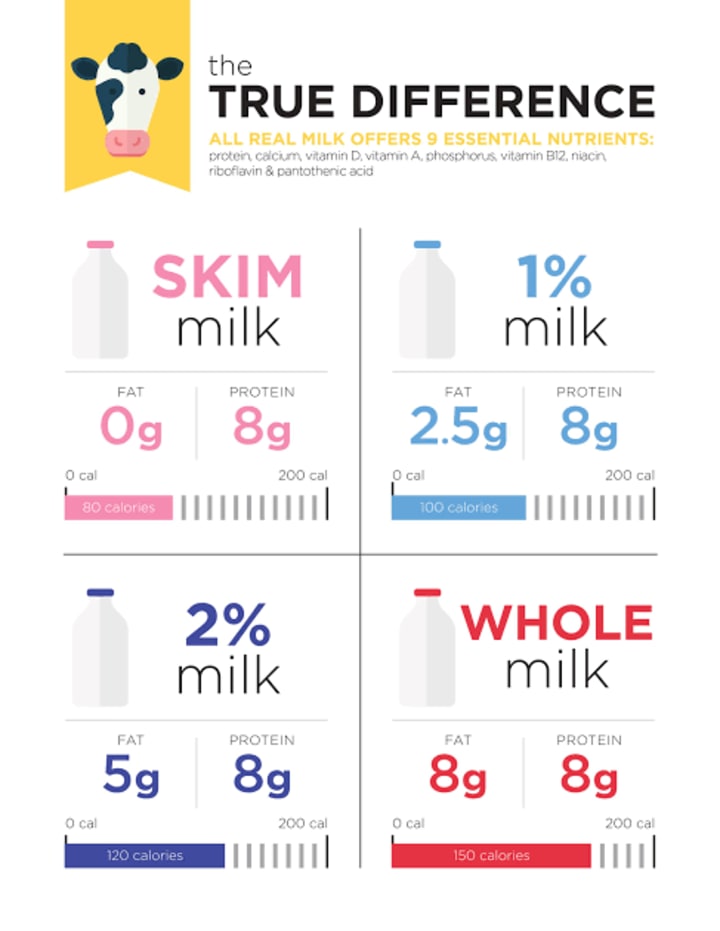The Most Effective Weight Gain Strategy For A Hardgainer
When you or your body no longer desire to consume food, is it difficult to acquire weight? Are weight gainers too pricey? Attempt whole milk.

The term "hard gainer" is used to describe someone for whom calorie intake has minimal effect, regardless of how much food they consume. But in reality, "hard gainers" just don't consume enough food or calories on a regular basis. Hard to succeed. difficult to gain muscle. The frustration of gaining weight can cause you to lose confidence in your ability to grow muscle. Solution? Try incorporating whole milk into your exercise regimen. GOMAD. For one month, consume one gallon of whole milk. Gains are certain. Unexpected, but if you're a hardgainer, you're likely attempting to put on weight quickly. A try might be worthwhile. You'll see that your bench might accumulate a lot of dirt.
A significant weight gain in a single month!
Whole milk contains 160 calories per cup. Just try to visualise consuming a gallon every day. A gallon is equal to 16 cups, so an additional 2560 calories are added. A large number of calories. Many "hard gainers" most likely don't consume this much food during the day. They will choose a day to eat a lot, and when they stop, the consequences are inconsistent.

Whole milk in a gallon minimum. No 1% fat-free crap, please. That is calorie-free. also taste watery. Get whole milk; it tastes better and contains the most inexpensive calories you can obtain. Weight gainers contain a lot of sugar and chemicals. quite pricey. If you avoid it, you're probably also doing your wallet some good.
Don't consume a gallon of milk at once, please. First of all, you'll appear a little odd if you drink an entire gallon of milk at once. Second, your stomach and the bathroom will become close friends. There is so much lactose that gas, bloating, and diarrhoea WILL result. I strongly advise against doing that.Since you want to consume a full gallon each day. savour it gradually. In 1/3s. morning, noon, and finally night.
"Hard gainers" only Consuming solid meals might be challenging to the point where acquiring the recommended number of calories can be challenging. Compared to, instance, solid foods, liquid calories are simpler to consume. faster and more transportable. As a "hard gainer," stuffing your face with solid food causes discomfort. You might even get stomach pain and vomit the entire thing. Let's be honest. If you are hard at work, you can't just throw some chicken breast together.

You receive an absurd amount of lactose from this. Use lactose pills to solve this issue. The majority of people have some lactose intolerance. if you are intolerant to lactose. For you, there are pills. Grab some at the pharmacy in your neighborhood. need no prescription.
Consistency is the secret. As a "hard gainer," GOMAD might provide you with the outcome you're looking for. If you use it wisely, you might find that you're gaining the weight you want. Try to eat more calorie-dense foods along with everything else you do.
Milk's health advantages seem to be greater for fermented varieties like yogurt, which influence the gut microbiota. Milk has a number of minerals that might influence blood pressure and bone health, but whole milk's high saturated fat content may mitigate some of these health-promoting effects. Even though popular media has theorised that whole milk is not less healthy than skim milk, research on diabetes and heart disease has not backed up this claim, and excessive consumption of any form of milk might result in weight gain due to the extra calories.
Research on milk frequently yields contradictory results. The wide range of nutritional properties in milk and the methods used to assess milk consumption, as evidenced by the following elements, could be some of the causes.
1. Depending on the populations being studied, different amounts of milk can be considered to be "high" or "low" intakes. For instance, Japanese people typically consume less than half the amount of milk that Westerners do [2].
2. Does milk come in a variety of categories, or is there simply one? Are they organic, whole, low-fat, or reduced-fat?
Depending on the breed and diet of the cows, the milk's composition (fat, protein from various amino acids) may change.
3. Are other dietary elements taken into account, such as the amount of fruits and vegetables, processed meat, and refined carbs consumed by the participants, which may mask the genuine health benefits of milk?





Comments
There are no comments for this story
Be the first to respond and start the conversation.